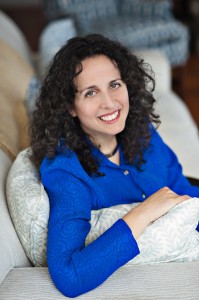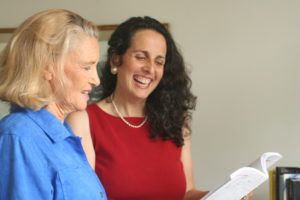
I’m teaching an informal book writing teleseminar this summer for Bring Your Book to Life graduates who are editing their first drafts and a few beginners. One person who wants to turn her workshops into a book asked what readers might be expecting and how to form her workshops into a book that truly resonates for her readers.
Here’s my answer–and your glimpse into your readers’ minds and hearts. Your readers are asking:
1. What pain or problem will this book help me solve?
2. What results/benefits can I expect?
3. Why are you the person who can help me with this?

4. Help me overcome any obstacles or objections (“It’s too hard,” “I can’t do this,” etc.).
5. Give stories/examples throughout to illustrate, make it real for me, help me apply it to my life and show me that you have experience (i.e. establish credibility).
6. Show me how I can achieve this (a plan, exercises, steps, etc.).
7. Help me trust you.
8. Speak my language.

9. Give examples I can relate to.
10. Make it straightforward, provide clarity and a sense of ease.
11. Give me confidence.
12. Make it creative, inviting or fun (or all three!).
Ask your questions or share ideas as a comment below.



Hi Lisa, you can also teach about how to pick a niche. I heard it’s important to pick a well-defined niche for your book to guide you during the writing process and help determine your target audience.
Regards,
Susan
Susan, I always teach my students to be clear about their audience and to define them as clearly as possible. As my colleague Sue Landis said recently, and I’m paraphrasing, psychographics have become even more important than demographics. You want to be clear of the values of your readers, not just how much they make, what they do for a living or what gender they are, though those can be important, too.
How to pick a niche? See who you like to work with, who are your ideal clients and what do they have in common? Who is most desperate for what you have to offer? What are you special skills and interests and what specific niche in your market do they resonate or align with best? You can also look at any gaps in the marketplace, but be sure that you resonate with that particular niche, as well.
Lisa, I wasn’t sure where to post my questions so here they are. First, I was watching a video on YouTube of some guy, I forget his name. He was giving his pointers on writing an ebook and said that in those types of books you shouldn’t have more than about 7 chapters. Is this true? Would I have to keep my book at a certain minimum just because I sell it first online? Also, with all the different information out there, how do I know which is the right things to listen to and which things I need to ignore? Oh, I do have one more question. My book is going to be about things that I’ve experienced being born and living with a disability (spina bifida). But I also want to incorporate alot of my faith and things I’ve learned about God and life, and why we’re here. I’m hoping it will be ok to write about those two subjects in one book because I really can’t separate either from myself. I was wondering if you had any thoughts or suggestions on this, though. Anything would greatly help. Again, thanks and God Bless.
Hi Melinda,
It really depends on the goal of your e-book. A free e-book is probably short. Information that people pay for will be longer. If you have great value to add, I’d be hesitant to make it an e-book but more likely to create a program or course–so that people can see the full value of your information.
There is a great deal of information out there. First, trust your gut–if something feels wrong about what you’re being told, or who’s telling you, I’d be careful. Second, is the person getting results? Is there a great deal of hype? Red flags. Third, is their audience your audience? Are their results likely to apply to yours or is their case too different?
Regarding your question about themes:
If you’re writing a memoir, then all these themes will make it rich. if you’re writing a self-help book, then the themes will also make it rich, but focus on who your audience is and the benefit to them. In this case, the audience might be spiritually inclined (or searching) and also people with a disability who are looking for inspiration and healing.
Hi Lisa,
I am mentioning celebrities in my book. Will I get sued for this? Do I need to get their permission? In writing or is a verbal agreement enough? It’s nothing like personal situations because, obviously, I don’t know any. But in a general way of how they have influenced me and what they have meant to me. Also, if I have people answer questions, and put some of those answers in my book, do I have to pay them for it? I don’t have the money to do that and it would only be a short page of my book that I would add it.
Hi Melinda,
It’s hard to say. It depends what you say about them. It is much harder for a public figure to sue than a “regular person.” So if you are writing satire for instance, you’re probably pretty safe. Of course, I’m not an attorney–you may want to consult one with the specific content of your book.
Lisa,
I have asked a few people I know with spina bifida to contribute to my book by answering questions that I’ve given them. I let them know that this would be done voluntarily because I could not afford to pay them. Is this a smart move or will they still be able to come back later after the book is published and take me to court for royalties or whatever? I’m afraid I leaped before I thought this part out.